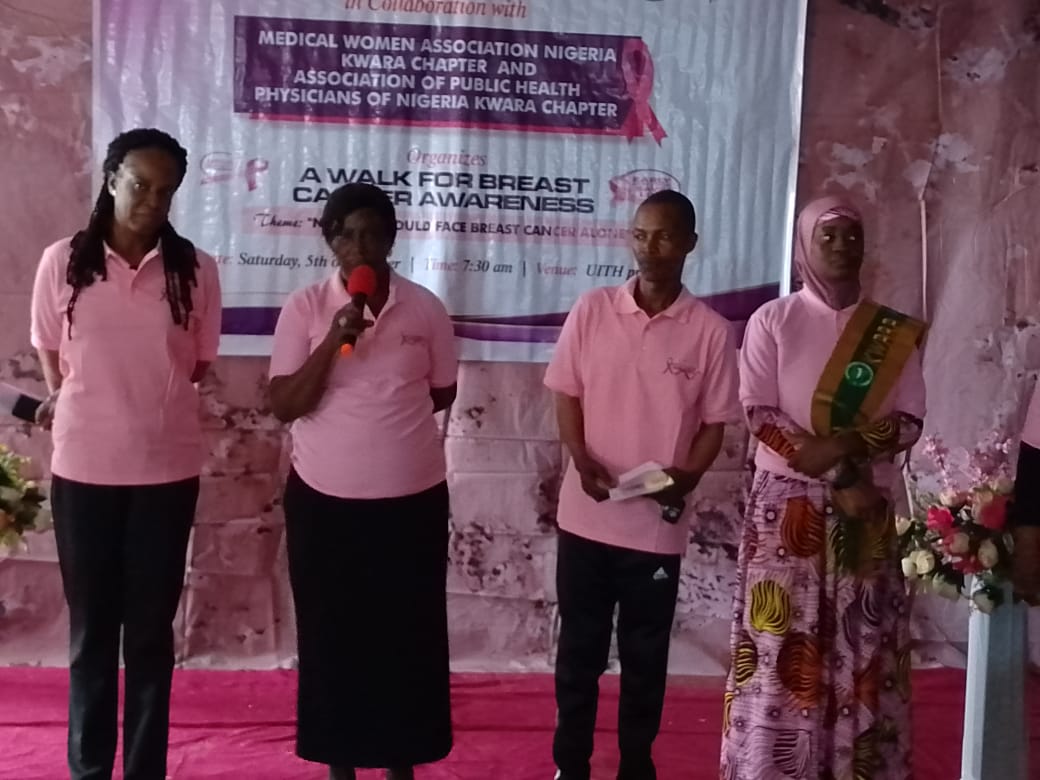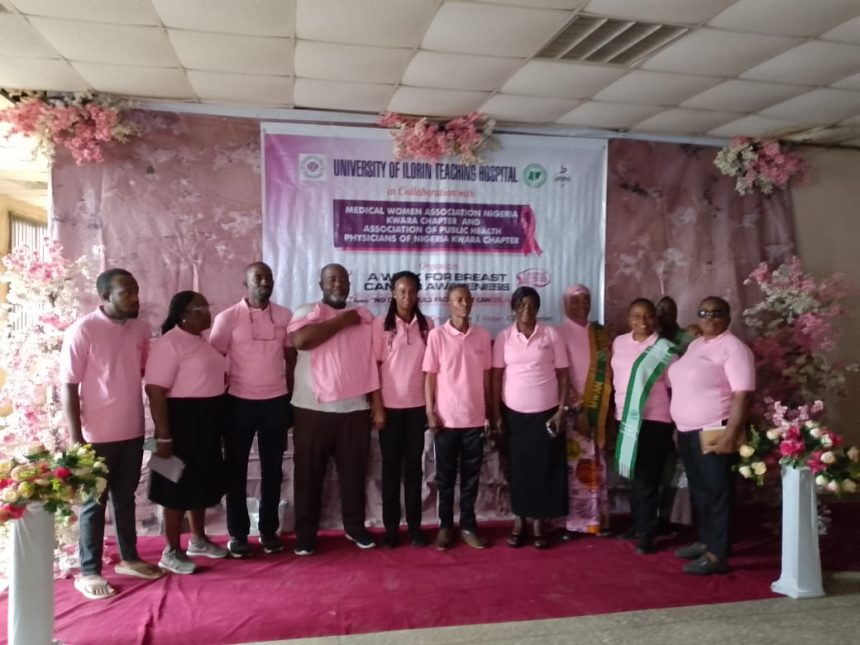From Taiye Joseph, Ilorin
The Chief Medical Director (CMD) of the University of Ilorin Teaching Hospital (UITH), Prof Yusuf Dasilva, has emphasised that breast cancer can affect both men and women.
He advised everyone to go for regular screenings to detect the disease early.
Prof Dasilva, made this statement during an interview with journalists in Ilorin, on the sidelines of a ‘Walk for Breast Cancer Awareness’ organized to mark the Breast Cancer Awareness Month.

The event, themed “No One Should Face Breast Cancer Alone,” was a collaboration between UITH and the Medical Women Association of Nigeria (MWAN).
Represented by Prof Bilyaminu Abayomi, the Chairman of the Medical Advisory Committee (CMAC) at UITH, the CMD explained, “Breast cancer is a disease in which malignant cells form in the tissues of the breast, and both men and women should be cautious. Screening is crucial for early detection.”
He highlighted that risk factors for breast cancer include increasing age, obesity, harmful alcohol use, family history of the disease, exposure to radiation, reproductive history, tobacco use, and postmenopausal hormone therapy.
Prof Dasilva also stressed that the theme for this year’s awareness campaign is timely, saying, “No one should face breast cancer alone.
“It helps in raising awareness and encourages behaviour change to reduce stigmatization against those with the disease.”
He further noted that early diagnosis and treatment can save lives, and that breast cancer is not a death sentence.
Dr Olushola Fasiku, a Consultant General Surgeon at UITH, echoed the importance of awareness, noting that breast cancer remains the leading cause of cancer-related deaths in women globally, with over two million cases recorded annually.
He urged people to dispel myths surrounding the disease, stressing that there is treatment available, and men should also get screened.
In her remarks, Dr Mojirola Fasiku, a Consultant Public Health Physician at UITH, stated that one in every eight women will likely develop breast cancer during their lifetime.
She called on stakeholders to support those living with the disease and warned against stigmatization, explaining that breast cancer is not contagious.







